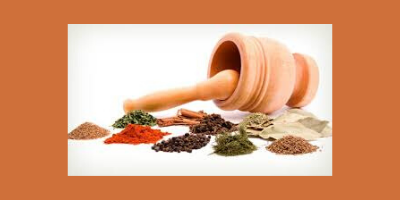Is ginger a spice or an herb? Ginger is listed as an herb in many culinary recipes while others classify it as a spice. Some call dried ginger powder a spice while calling the fresh root version an herb. What’s the answer? It’s a spice! No matter how the botanical and culinary experts label this spice/herb, it is definitely an ingredient that everyone should have in their refrigerator. There is more to this unassuming rhizome than its culinary uses. Ancient Chinese pharmacists recognized ginger as a healing root about five centuries ago. It found its fame in the west with ginger beer followed by ginger-ale and of course candied ginger and finally the sweet and delightful famous gingerbread man.
1- There are over 1,000 Species of Ginger
There are about 1300 species actually. They are commonly used for ornamentation, spices and medicinal purposes. Most plants of this species have aromatic exotic flowers. Ginger thrives in the tropics and is grown in India, China, West Africa, It is characterized by strong woody sweet smell. Its outer covering is a light tan and the inner flesh can be creamy to deep yellowish-brown. It was one of the first oriental spices to arrive in Europe, brought in by the Arab traders into Greece and Rome.
2- Ginger has been around for 1000s of Years
The word ginger comes from the ancient Sanskrit singabera, meaning ‘shaped like a horn’.
Historically ginger can be traced back to 5000 years, used by the Ayurvedic Indians and traditional Chinese as a medicinal root.
By the first century, the root had traveled to the Mediterranean and by the Middle Ages, ginger was used throughout Europe. It was the rich man’s spice/herb: one pound of ginger would get you a live sheep.
The Ginger bread man has his origin from the Queen’s court. Queen Elizabeth I, was the first to have them in the shape of little edible figures. She had the gingerbread figures crafted and presented in a way that they resembled some of the important guests.
Ginger Beer is a soft drink that has been brewed in England for at least two hundred years.
3- There are 7 different Culinary Forms of Ginger
When you think of ginger what comes to mind? To restrict ginger to ginger ale or ginger bread is to limit flour to just cakes. Ginger is not just available as fresh ginger root, it is sold in seven different ways.
• Raw Ginger: grated, chopped or juice of raw ginger. Ginger is not just for Asian cooking, fresh ginger can add flavor to marinades, dips, and glaze for meats, baked vegetables, soups, breads, cakes, ice-cream, tarts and even smoothies.
• Dried ginger: it’s not powdered but dried in the root shape. It is a great substitute for fresh ginger and can be used in most of the recipes above – you may have to double the amount as some of the flavor is lost in the drying process.
• Pickled Ginger: gari or beni shoga in Japan, is pickled in sweet vinegar and is usually colored bright pink. It is an accompaniment to sushi and is also eaten to refresh the breath. Ginger is also pickled in Indian cuisine, along with other vegetables in a spicy mix.
• Preserved ginger: ginger is preserved with sugar-salt solution, available in Asian or specialty store. Great for desserts and salads
• Crystallized ginger: or candied ginger, is ginger cooked in sugar until it is crystallized and coated with sugar. It’s not as sharp and ginger, it is great for dessert.
• Ground ginger: is ginger in the powdered form, you can substitute ground ginger for fresh but you will have to double the amount. It’s got a longer shelf life and is great for smoothies and dessert, where you do not want the ginger flavor to be overpowering.
• Ginger oil: used more for its medicinal properties. Some infused cocktails and mocktails can be made from it.
4- Ginger has Medicinal Properties
Ginger is not just a condiment in your pantry, it has healing powers. Ginger has been traditionally used to treat upset stomach and motion sickness. Ginger tea is often recommended for people having nausea and digestive issues. Gingerol is the main bioactive compound in ginger, responsible which has powerful anti-inflammatory and antioxidant effects. If you have not been feeling hungry, ginger can really boost up that sluggish digestive system and activate your appetite. Great home remedy for flatulence.
Ginger is also said to reduce menstrual cramping. Ginger with honey and warm water can bring relief.
Ginger has anti-inflammatory properties that can help reduce joint pains and also post workout fatigue. Add a bit of ginger in your protein shake, after your workout.
If your sinuses are troubling you, and you have a throat irritation ginger certainly helps reduce the symptoms.
Gingerol-related components of ginger have been reported to possess antimicrobial and antifungal properties
Not only does ginger reduce your joint pains, it also has aphrodisiac properties and can also increase your metabolism.
5 – Ginger is a Palate Cleanser
Pickled ginger traditionally is used as a palate cleanser between different types and flavors of sushi. In the traditional sushi bar the chef serves you one piece of nigiri at a time followed by gari or pickled ginger. Since each kind of fish has a different flavor profile and the differences are subtle, the ginger helps clean the palette before sampling the next one. The sharpness of ginger is a perfect antidote to sea food.
But why ginger?
Ginger is grown as a root and is a flexible ingredient that can be consumed in drinks (tea , beer, ale) or in cooking. It can be used to make foods spicy and even as a food preservative. For over 2000 years, Chinese medicine has recommended the use of ginger to help cure and prevent several health problems. It is known to promote energy circulation in the body and increase our body’s metabolic rate .
Here ‘s a list of some of the amazing benefits of ginger that you may not aware of. Although some of these are still being debated, you could do your own research if you want to use ginger for medicinal purposes.
The Benefits of Ginger
1. Maintains Normal Blood Circulation. Ginger contains chromium, magnesium and zinc which can help to improve blood flow, as well as help prevent chills, fever, and excessive sweat.
2. Remedies Motion Sickness. Ginger is a known effective remedy for the nausea associated with motion sickness. The exact reason is unknown, but in a study of naval cadets, those given ginger powder suffered less.
3. Improves absorption. Ginger improves the absorption and stimulation of essential nutrients in the body. It does this by stimulating gastric and pancreatic enzyme secretion.
4. Cold and Flu Prevention. Ginger has been used for thousands of years as a natural treatment for colds and flu around Asia. The University of Maryland Medical Center states that to treat cold and flu symptoms in adults, steep 2 tbsp. of freshly shredded or chopped ginger root in hot water, two to three times a day
5. Combats Stomach Discomfort. Ginger is ideal in assisting digestion, thereby improving food absorption and avoiding possible stomach ache. Ginger appears to reduce inflammation in a similar way to aspirin and ibuprofen
6. Colon Cancer Prevention. A study at the University of Minnesota found that ginger may slow the growth of colorectal cancer cells.
7. Reduce Pain and Inflammation. Ginger contains some of the most potent anti-inflammatory fighting substances known and is a natural powerful painkiller.
8. Fights Common Respiratory Problems. If you’re suffering from common respiratory diseases such as a cough, ginger aids in expanding your lungs and loosening up phlegm because it is a natural expectorant that breaks down and removes mucus.. That way you can quickly recover from difficulty in breathing.
9. Ovarian Cancer Treatment. Ginger powder induces cell death in ovarian cancer cells.
10. Strengthens Immunity. Ginger helps improve the immune system. Consuming a little bit ginger a day can help foil potential risk of a stroke by inhibiting fatty deposits from the arteries. It also decreases bacterial infections in the stomach, and helps battle a bad cough and throat irritation.
11. Combats Morning Sickness. Ginger has demonstrated a success rate of 75 percent in curing morning sickness and stomach flu.
How Much?
These are some of the health benefits to ginger. How it can be taken is up to you, some people will say that 2 tablespoons of shredded ginger in a cup 2-3 times a day is ideal when you are feeling under the weather. A lot of people will mix ginger and honey to help soothe a cold and drink it many times a day. Naturally, it’s used in cooking and candy, so it’s difficult to measure to say exactly how much you should consume,
But with all these benefits, and with it so readily available, it’s really something we shouldn’t even try to avoid. In fact you could even mix it up with other ingredients such as Green Tea.
COURTESY: http://www.lifehack.org/articles/lifestyle/10-benefits-of-ginger-that-you-didnt-know-about.html
http://tastybite.com/2016/05/5-things-you-didnt-know-about-ginger/





0 Comments